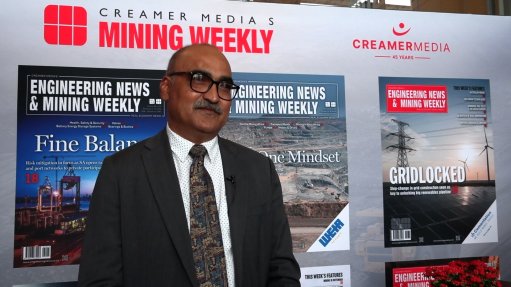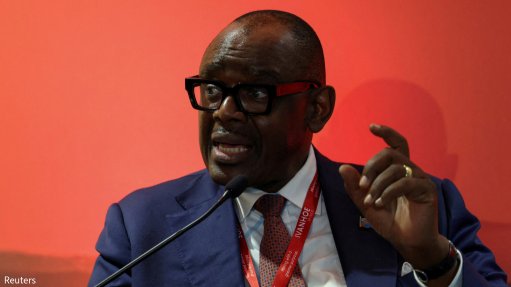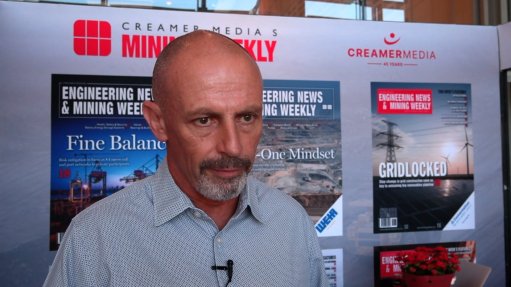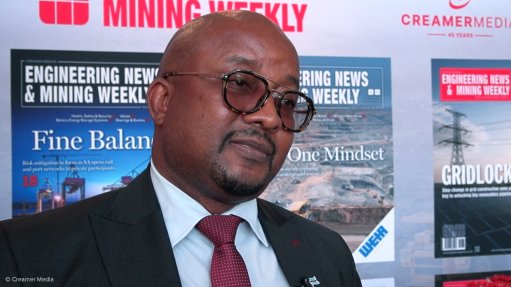Corridors’ revival to improve mining efficiency


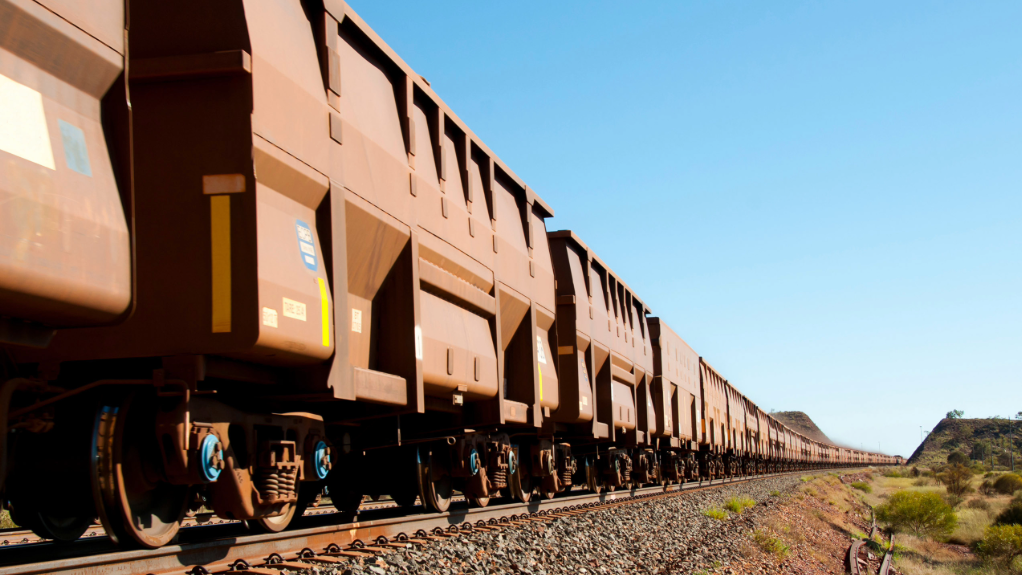
MARK EVANS Economic growth will be boosted by the revival of the Saldanha and Richards Bay minerals rail corridors
MINERAL RAIL CORRIDOR Once fully operational, the mineral rail corridors will improve the overall logistical operationality for mining operations in the respective regions
The revival of the Richards Bay and Saldanha Bay rail corridors is gradually progressing. A request for information on public sector participation (PSP) entities was put out in May, and a request for proposals (RFPs) for private investment is expected, but it may not be until 2029 before substantive changes from private concessions are seen, says business management consulting firm Oliver Wyman energy and natural resources partner Mark Evans.
“The revival of these mineral rail corridors holds paramount importance for the mining sector in South Africa. The coal and iron-ore industries are not just vital to our export economy; they’re cornerstones of community stability and economic growth. Reliable rail logistics can bolster production capacity, decrease operational costs, and attract foreign investment.”
The rail corridors, once fully operational or performing at higher capacities, will also improve the overall logistical operationality for mining operations in the respective regions, such as those from which the export terminals of Richards Bay and Saldanha Bay obtain minerals for export.
This improvement includes the enhancement of the mine’s operational capacity, cost reductions and attracting foreign investment, he adds.
“Whoever ultimately administers the concessions, maintaining the cost-effectiveness of logistics is crucial for ensuring global competitiveness in the iron-ore and coal markets . . . the coal-to-Richards Bay and iron-ore-to-Saldanha corridors come with targets and plans to enhance capacity; however, improvements must start now during the interim period, without waiting for the concession takeover,” notes Evans.
Further, the South African economy and the mining sector’s GDP will be boosted by the revival of these corridors, as a fully operational rail network will spur growth and development in other local industrial sectors, including manufacturing.
The revival will also improve export activities, which, in turn, will create employment and growth opportunities in various business and industrial sectors, he adds.
While there is uncertainty about the next stage of the PSP process, private investment in rail infrastructure and issuing RFPs will also play an important role. Here, Evans says stakeholders can start to engage in corridor and related infrastructure rehabilitation efforts to ensure the infrastructure is in working condition to facilitate operations once corridors are operational or capacity is ramped up.
“For mining operators, this means not just providing capital but also cooperating in operational and management efforts,” he notes.
Public–Private Partnership
It is important that the private sector create real growth opportunities for the revival of these rail corridors, but “effective collaboration among all stakeholders, including government, mining companies and private sector participants, is essential for the success of these reforms,” says Evans.
He notes that the private sector can contribute and benefit from investments by setting up tariff models and engaging in infrastructure investment agreements, in addition to investments made by other sources and stakeholders, including financial institutions and interested or related technical industry experts.
In this regard, Transnet plays a “quintessential role in orchestrating” the realisation of the minerals rail corridors’ potential through PSP projects.
“Firstly, they must facilitate PSP by establishing transparent frameworks for operation and governance.”
He also notes that maintenance and upgrades of infrastructure should include active contributions from private-sector role-players whose involvement should go beyond mere financial input.
The private sector must engage in decision-making processes to enhance operational efficiency, driving capacity uplift and reliability, adds Evans.
He highlights that various contributors have been considered, including the case whereby 11 of 25 private-sector rail operator applicants have been provisionally approved for rail slots on South Africa’s freight network, according to an announcement made by Transport Minister Barbara Creecy on August 22, 2025.
“This was a competitive application process, and their full operational access, covering 41 routes across six major freight corridors, is pending further regulatory compliance and contract negotiations,” says Evans.
Open access is realised with this initiative and encourages a growing pipeline for private sector initiatives.
“The new train operating companies are expected to add 20-million tonnes of freight annually, starting in the 2026/27 financial year, contributing to the government’s target of 250-million tonnes by 2029.”
The private sector, with its desire and capability, is now positioned to not only enhance the key coal and iron-ore corridors but also boost logistics efficiency across multiple commodities, concludes Evans.
Article Enquiry
Email Article
Save Article
Feedback
To advertise email advertising@creamermedia.co.za or click here
Announcements
What's On
Subscribe to improve your user experience...
Option 1 (equivalent of R125 a month):
Receive a weekly copy of Creamer Media's Engineering News & Mining Weekly magazine
(print copy for those in South Africa and e-magazine for those outside of South Africa)
Receive daily email newsletters
Access to full search results
Access archive of magazine back copies
Access to Projects in Progress
Access to ONE Research Report of your choice in PDF format
Option 2 (equivalent of R375 a month):
All benefits from Option 1
PLUS
Access to Creamer Media's Research Channel Africa for ALL Research Reports, in PDF format, on various industrial and mining sectors
including Electricity; Water; Energy Transition; Hydrogen; Roads, Rail and Ports; Coal; Gold; Platinum; Battery Metals; etc.
Already a subscriber?
Forgotten your password?
Receive weekly copy of Creamer Media's Engineering News & Mining Weekly magazine (print copy for those in South Africa and e-magazine for those outside of South Africa)
➕
Recieve daily email newsletters
➕
Access to full search results
➕
Access archive of magazine back copies
➕
Access to Projects in Progress
➕
Access to ONE Research Report of your choice in PDF format
RESEARCH CHANNEL AFRICA
R4500 (equivalent of R375 a month)
SUBSCRIBEAll benefits from Option 1
➕
Access to Creamer Media's Research Channel Africa for ALL Research Reports on various industrial and mining sectors, in PDF format, including on:
Electricity
➕
Water
➕
Energy Transition
➕
Hydrogen
➕
Roads, Rail and Ports
➕
Coal
➕
Gold
➕
Platinum
➕
Battery Metals
➕
etc.
Receive all benefits from Option 1 or Option 2 delivered to numerous people at your company
➕
Multiple User names and Passwords for simultaneous log-ins
➕
Intranet integration access to all in your organisation










